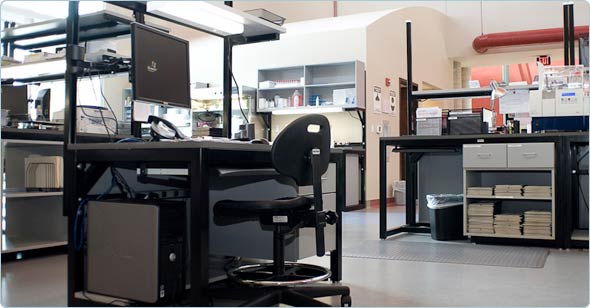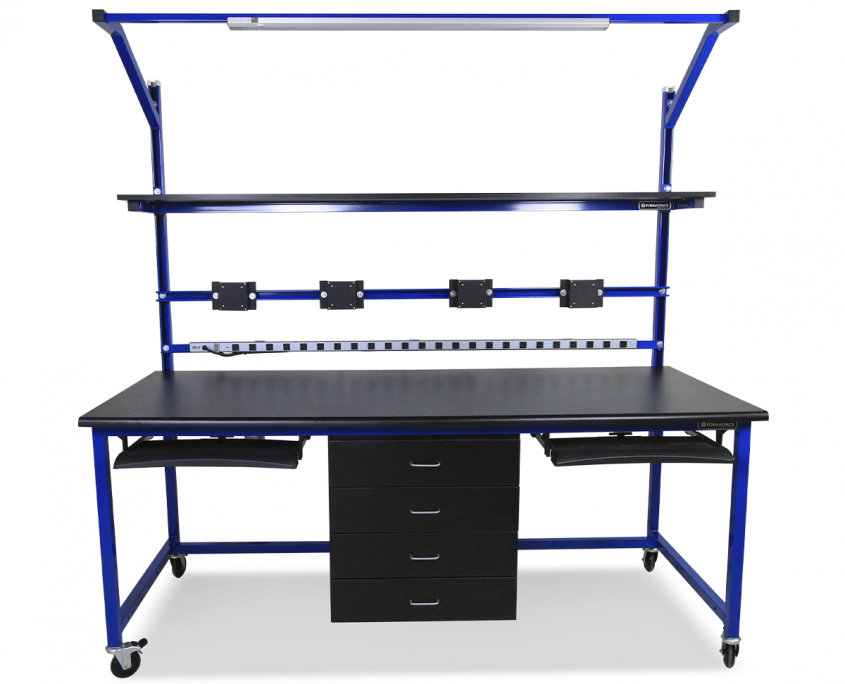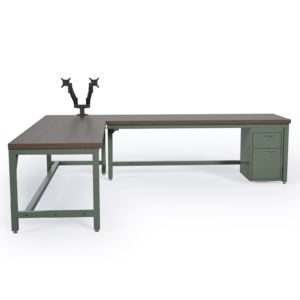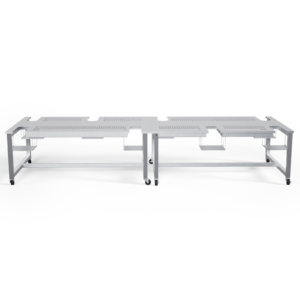You Might Have an Outdated Idea about Data Entry Work.
If you’re an avid reader of the comments section of online newspapers or blogs, you’ve undoubtedly come across those annoying home data entry job offers promising thousands of dollars of income per month to those working from home.
Spoiler alert: these unsolicited offers are invariably a scam — but you knew that. Unfortunately, these unscrupulous offers seem to ensnare just enough financially desperate and naive victims to keep the scam solicitations going.
These online scams also have an unfortunate side effect: they cast a shadow over the reputation of the legitimate data industry at large, with large being the keyword.
We’re Creating More Data Than You Can Imagine
Just how large is the data market?
The numbers are so unfathomably large that we’re going to have to learn a new term: zettabytes.
Research consultancy IDC predicts that by the year 2025, there will be 163,000,000,000,000 GB of data (or 163 zettabytes), up from just 10,000,000,000,000 GB (10 zettabytes) in 2015.
It’s hard to visualize that much data, but it’s roughly equivalent to 40 trillion DVDs; enough to reach the moon and back, not once, not twice, but 100 million times.
And as we learn to monetize and trade data, worldwide revenues for big data and business analytics will grow rapidly. According to IDC, revenues from data are projected to increase at a compound annual growth rate of 11.7% from the period of 2016 to 2020 — from $130.1 billion in 2016 to more than $203 billion in 2020.

We’re Relying on Data More than Ever Before
Why is the data collection business — and its associated revenues — rocketing upward?
A simple explanation is that we need data to make better decisions.
We use data:
- To solve problems
- To provide personalize solutions
- To improve quality
- To attract and retain customers
- To identify trends and opportunities
On the other hand, another reason for increased data collection is that the data gathering processes themselves — ranging from online customer surveys to automated IoT devices and sensors — are becoming more automated – thus more efficient.
One consequence of this massive growth in data collection is that we seem to be collecting data faster than we can analyze and interpret it. (Veritas estimates that only 15% of data collected is useful for businesses.)
As a Result, Data Entry Work is a Big Task
As data becomes increasingly important to the bottom line, so too does the task of managing it.
If Veritas’ estimate is correct that only 15% of data collected is actually useful, that means there is a lot of work required to:
- Clean corrupted or illegible data
- Verify data sources
- Transfer data into useful formats
- Etc.
before it can be analyzed and used.
Unfortunately, in the case of data from hardcopy sources (such as scans of printouts or handwritten data), optical character recognition (OCR) technology only goes so far. That’s where time-consuming data entry work comes in — humans working at data entry desks have to either transcribe the data directly or verify that automated processes have done the job properly.
More Workers are Taking on Responsibility for Data Entry Work
Who is doing this data entry work?
If you define the task narrowly, the answer is pretty clear: you can walk around your company or institution and point out one or more data entry specialists working away at their data entry desks. Or perhaps, you’ve elected to outsource this work to data-entry contractors, many of which are located offshore — in India, for example.
But this may be an outmoded view of how pervasive data entry work has become.
Indeed, the answer to the question of “who is doing data entry work?” is changing over time.
Increasingly, the answer is all of us are now doing data entry work in some form or another, from the CEO down to the front line customer service representatives.
Let’s take a look an example: scientists working in a laboratory. In the past, a great number of laboratories were “wet labs” where researchers handle physical specimens directly to perform experiments and collect empirical data.
Today, an increasing number of scientific researchers work in “dry labs” or “computer labs” where they conduct experiments and analyze data using computer software, such as MatLab or R. The ability to collect, clean, interpret, and analyze data is critical to the work that they do.
This shift toward working with data is affecting nearly every profession, including job titles such as:
CIO / CDO
The role Chief Information Officer (CIO) or a dedicated Chief Data Officer (CDO) is increasingly focused on best practices for data collection, protection, and monetization.
Designers and Engineers
Data from customers (from both surveys and data collected by automated systems embedded into products) are helping designers and engineers using CAD/CAM data systems build better products, faster.
Freelancers at Outsourced Data Entry Companies

Freelance data entry specialists contracting for legitimate outsourced data entry companies often work long hours in front of the computer. An ergonomic workstation with sit-to-stand capability is critical to reducing muscle and eye strain.
Human Resource (HR) Specialists
HR specialists are tasked with collecting and maintaining confidential personnel data about job candidates and employees. It’s not only crucial to maintaining accurate data for salaries, benefits, occupational injuries but increasingly, HR specialists are using sophisticated data metrics to assess employee performance.
Quality Assurance (QA) Specialists
Data analysis has long been associated with successful Quality Assurance programs. Today’s embedded systems and other IoT tools that college customer and manufacturing data can provide QA specialists with great insight — if they can successfully extract useful information for the increasingly large amount of data.
Regulatory Compliance Officers
Compliance with rules governing companies and institutions — from OSHA to the EPA, to the IRS, to ISO certifications — require collecting and analyzing large amounts of data.
Sales and Marketing Professionals
From filling the sales funnel to analyzing which prospects will convert into customers, marketing and sales professionals are increasingly relying on data-driven processes to increase the bottom line. As a result, more time than ever is spent on managing data used for online marketing campaigns and customer relationship management (CRM) programs.
Supply Chain and Operations System Managers
From analyzing complex manufacturing processes to selecting which supply partners will help increase quality while reducing costs, supply chain specialists and operations systems managers increasingly rely on data to make critical decisions that affect the profitability.
What’s the bottom line?
As you can see, more and more of us are actually doing data entry tasks, even when it’s not in our job title. That’s why it’s important that we have a clean, organized place to work that’s both ergonomic and efficient.
Choose Ergonomic, Efficient Furniture from Formaspace to Support Your Data Entry Personnel
Data entry work can take a physical toll, even if you are only doing it for an hour or two at a time.
That’s why we recommend a clean, well-lit place to work, such as a Formaspace workbench that’s designed with comfort and efficiency in mind.
Our data entry workbenches feature:
- Height adjustable desks that can accommodate individuals with different statures. Also known as Sit-to-Stand desks, these allow you to move from a seated position to a standing position at the touch of a button for increased movement (and blood circulation) during the workday.
- Storage solutions, including angled shelves, flat shelves, and built-in storage compartments that can be locked to protect sensitive data.
- Custom accessories that help you work more efficiently, including built-in task lighting to help reduce eye strain, computer monitor arms to keep your monitor in the proper, ergonomically correct position, heavy-duty casters to make it easy to move the furniture when needed, convenient keyboard trays that keep things tidy, as well as wire and cable management features that help prevent tripping accidents.
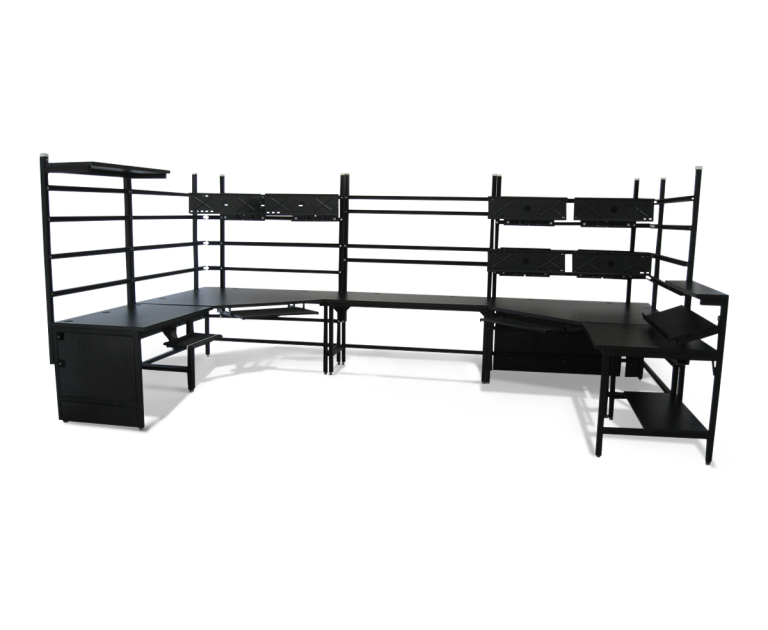
If you are interested in a corner data entry workbench, use our online tool to calculate your space requirements.
Data Entry Desk Design Guide: Specific Requirements for Your Industry
Your requirements for data entry will vary depending upon which industry you work in.
We’ve prepared a quick guide below that touches on some of the key considerations for specifying data entry desks to help you get started.
But we also recommend you take advantage of our friendly Formaspace Design Consultants. They can help you tailor a custom solution to your exact needs, which we can manufacture for you here at our factory headquarters in Austin, Texas.
Accounting, Bookkeeping, and Finance
Design Tip:
Accounting, Bookkeeping, and Finance firms have a fiduciary responsibility to keep client data safe and secure. Custom data entry workstations with built-in lockable storage will help secure confidential data.
Communication Companies and Utilities
Design Tip:
As mobile phones, cable TV, and satellite data companies converge, managing data delivery is the name of the game. Don’t forget that power generation and network engineers and technicians working behind the scenes need an efficient, organized place to work with data as much as customer-facing employees do. Formaspace data entry desks with their efficient storage compartments, built-in task lighting and monitor arms that allow you to set your screen in an ergonomically correct position, which will help reduce fatigue and eye strain on the job.
Data Centers, Including Cloud Network Providers
Design Tip:
Uptime is critical for Data Centers. According to some estimates, the average cost of a data center outage is almost three-quarters of a million dollars ($740,000), so it’s important to provide employees with ergonomic data entry desks to prevent errors caused by fatigue during long work hours.
Educational Institutions
Design Tip:
Administrations have to be on the alert to protect and maintain accurate student data records for decades into the future. This data needs to remain confidential yet accessible when it’s requested by the student. Custom data storage by Formaspace can help keep things organized.
Healthcare Providers
Design Tip:
Whether it’s a solo practitioner office or large healthcare hospital system, healthcare providers need to comply with stringent HIPAA (Health Insurance Portability and Accountability Act of 1996) regulations governing patient privacy. In practice, this means it’s important to create physical spaces where records can be secured, yet allow a variety of staff to access them, from medical coders to scribes, to physician assistants, to physicians and nurse practitioners themselves.
Human Resource and Staffing Companies
Design Tip:
Confidentiality is also important for outsourced HR and staffing companies. In cases where they manage employee benefits, they have the same responsibility as healthcare providers to maintain strict confidentiality with respect to the chain of custody of personal data. This means that lockable storage and other security measures are key design requirements.
Insurance
Design Tip:
Insurance companies have a fiduciary responsibility to maintain the private financial data or their customers, often for decades. Data processing is crucial to the health of the industry, and small mistakes can cause major losses. Investing in ergonomic workstations that reduce fatigue can minimize that risk.
Government and Tax Authorities
Design Tip:
From the IRS to the OPM, government and tax authorities need to collect and maintain accurate records, often from handwritten forms. They also need to protect citizens’ data from unauthorized access. Formaspace is a GSA-approved supplier that has helped both government and military organizations with custom solutions to help keep data organized and secure.
Laboratory Science
Design Tip:
As we mentioned above, laboratories are increasingly using data to conduct experiments, necessitating accurate data management tools. Empirical data collection is also increasingly automated thanks to Laboratory Information Management Systems (SIMS). Turn to Formaspace for wet or dry lab solutions that will keep your data safe, accessible, and secure.
Law Firms
Design Tip:
Keeping client data records secure is critical for law firms. Failure to do otherwise is malpractice. Formaspace can help create organized and secure data rooms to help your staff work more efficiently during the discovery and evidence production processes.
Manufacturing
Design Tip:
As manufacturing facilities transition to Industry 4.0 best practices, the amount of data collected is rising rapidly. It’s crucial to have dedicated spaces within factories to collect and organize data. Formaspace has decades of experience working with manufacturers to create custom solutions that are both ergonomic and efficient.
Real Estate and Title Companies
Design Tip:
From front-line realtors to brokers, to title companies, it’s important to keep a clear chain of custody for important documents and data. While data records of prospects, customers, and transactions are now electronic, many critical documents and legal records remain paper-based. Formaspace can work with you to create efficient data entry workstations to keep things organized and secure.
Retail and Wholesale
Design Tip:
Successful retailers and wholesalers are using data collection to find their best sales prospects as well as for developing new products that will increase the bottom line. Yet, these same retailers can be brought to their knees if a data breach results in exposing shoppers’ credit card numbers. We can help you create secure data workspaces that can keep the work organized while minimizing the risk of at a loss.
Restaurant and Hospitality
Design Tip:
Similar to the retail and wholesale industry, the restaurant and hospitality industry is leveraging personal customer data to create more personalized experiences. The potential downside is inadvertent disclosure of data, either through inattention or criminal activity. Secure data work centers are a crucial component of keeping customer data safe.
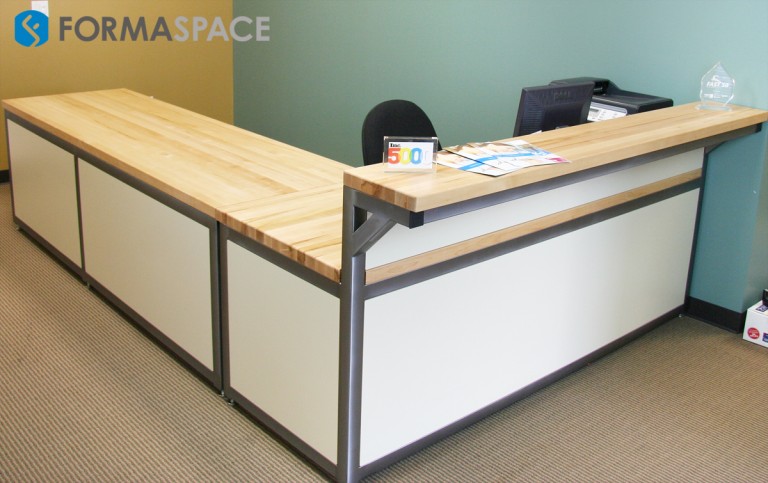
Shipping and Logistics
Design Tip:
By their very nature, the shipping and logistics industries handle vast amounts of data. This high throughput can take a toll on shippers, packers, and parcel delivery staff. That’s why creating ergonomic data workstations with built-in sit-to-stand features that help employees keep more active during the day are part of the solution.
Turn to Formaspace for Efficient Data Entry Solutions
If you can imagine it, we can build it.
And, most importantly, you can design it, starting right now with our photo-realistic furniture design tool. It’s free and easy to use. Just select your base furniture design and start customizing. You can choose the colors, materials, and accessories you want to make your data entry work more secure and efficient.
We also encourage you to talk to our friendly Formaspace Design Consultants to learn about the full range of options available to you for data entry workstations.
Remember, our Design Consultants can also help you come up with a fully custom solution that meets your exact needs, which we can build for you here at our Austin, Texas factory headquarters.
Find out why Oculus, Toyota, Busch, Apple, Google, Twitter, Capital One, and Parabola are Formaspace customers.



